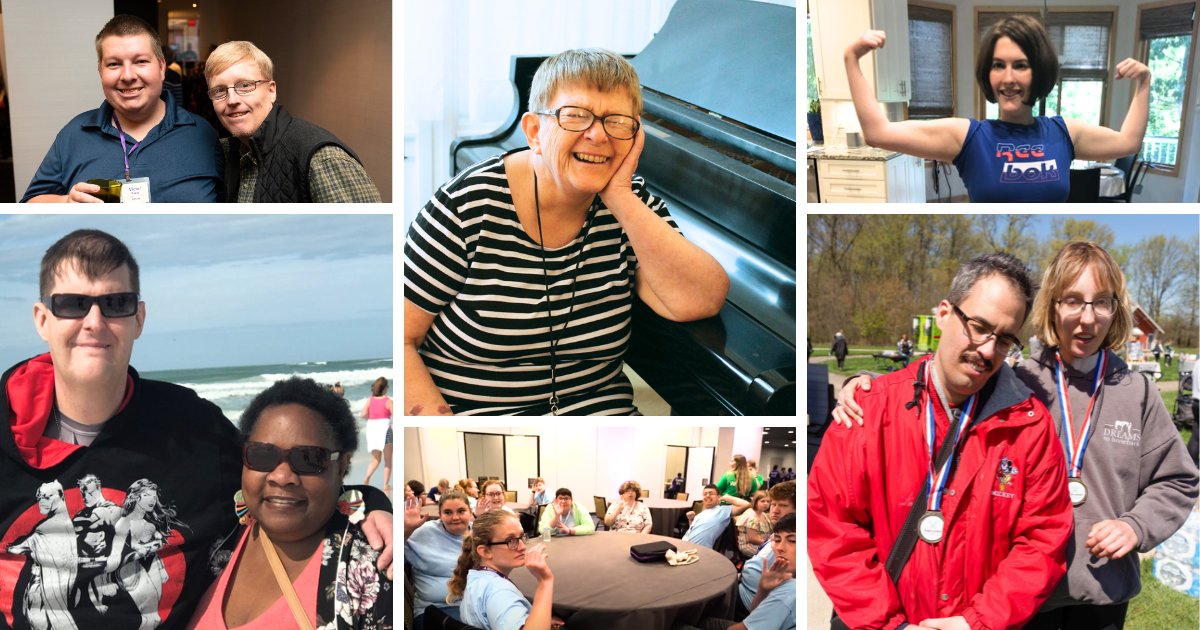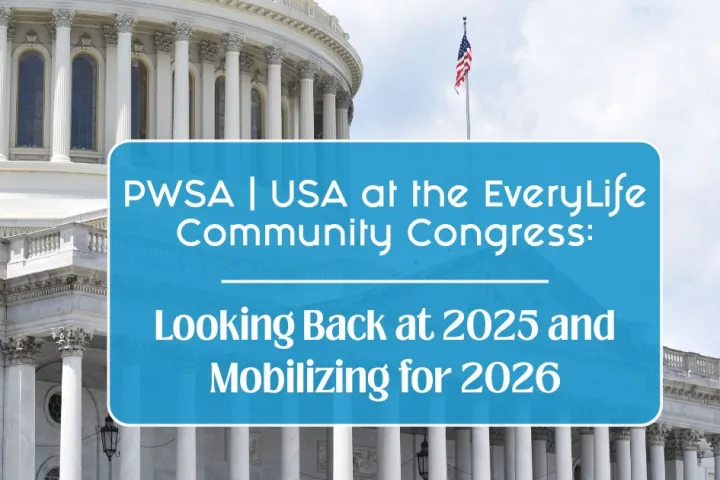Contributed by Barb Dorn, RN, BSN
As I began my research looking at specific health issues in the aging adult with PWS, I soon learned that there was not much information on this topic. I did find a few articles that documented clinical evidence for early signs of aging. As far as dementia, I found one study that identified dementia in some individuals with PWS, along with an article that shared a case study of a woman with PWS who had dementia. However, the number of adults with PWS that have been studied is so low, so it is difficult to know if these studies have broader implications.
I developed a survey to help identify what health issues parents, guardians and residential caregivers were seeing in adults with PWS, ages 30 years and older. Since I was only interested in identifying the prevalence in health issues, I did not worry about overlap. A summary of the findings is noted below.
Parent and Caregiver Survey
Number of Surveys Completed – 89
Click through the tabs below to view the results.
Ages 19-29 – 4
Ages 30-39 – 55
Ages 40-49 – 17
Ages 50-59 – 12
Ages 60+ – 1
Males – 40
Females – 49
Diabetes – 27
High Cholesterol – 21
Depression – 21
High Blood Pressure – 16
- No – 54
- Yes – 32
- No comment – 2
- Dental Issues – 48
- Constipation – 27
- Osteopenia / Osteoporosis – 27
- Mobility Issues – 24
Worsening Mental Health – 16
- Weight Management – 16
- Worsening Mental Health – 14
- Dental Issues – 14
- Diabetes – 12
- Mobility – 8
Cardiac and Vascular Issues – 7
Residential Care Provider Survey
Number of Surveys Completed – 9
Click through the tabs below to view the results.
Ages 30-39 – 5
Ages 40-49 – 6
Ages 50-59 – 6
Ages 60+ – 4
Males – 10
Females – 11
- Depression – 10
- High Cholesterol – 4
- Diabetes – 3
High BP/ Heart Disease/ Arthritis – 2
- No – 4
- Yes – 5
Osteopenia / Osteoporosis – 12
Constipation – 10
Dental Issues – 8
Mobility Issues / Bowel Incontinence – 7
Constipation/ Bowel Issues / Obstructions – 6
“Seasonal PWS Issues” – fall / spring – 2
Cardiac and Vascular Issues – 7
Bases on the results of these surveys, I focused my information on several prevalent health issues including Dental Issues, Slow Gastrointestinal Functioning (choking, gastroparesis and constipation), Diabetes, Weight Gain/Obesity, Low Bone Density, Cardiac Issues (hypertension, elevated lipids and swelling), Mobility Issues and Worsening Menal Health/Low Energy/ Dementia. Feel free to view the webinars below.
More research on aging in adults with PWS is needed. This survey was a non-scientific attempt to identify some of the more prevalent health issues facing adults as they age.
Watch: PWS Aging Research and Health Updates
Share this!





 Perry A. Zirkel has written more than 1,500 publications on various aspects of school law, with an emphasis on legal issues in special education. He writes a regular column for NAESP’s Principal magazine and NASP’s Communiqué newsletter, and he did so previously for Phi Delta Kappan and Teaching Exceptional Children.
Perry A. Zirkel has written more than 1,500 publications on various aspects of school law, with an emphasis on legal issues in special education. He writes a regular column for NAESP’s Principal magazine and NASP’s Communiqué newsletter, and he did so previously for Phi Delta Kappan and Teaching Exceptional Children. Jennifer Bolander has been serving as a Special Education Specialist for PWSA (USA) since October of 2015. She is a graduate of John Carroll University and lives in Ohio with her husband Brad and daughters Kate (17), and Sophia (13) who was born with PWS.
Jennifer Bolander has been serving as a Special Education Specialist for PWSA (USA) since October of 2015. She is a graduate of John Carroll University and lives in Ohio with her husband Brad and daughters Kate (17), and Sophia (13) who was born with PWS. Dr. Amy McTighe is the PWS Program Manager and Inpatient Teacher at the Center for Prader-Willi Syndrome at the Children’s Institute of Pittsburgh. She graduated from Duquesne University receiving her Bachelor’s and Master’s degree in Education with a focus on elementary education, special education, and language arts.
Dr. Amy McTighe is the PWS Program Manager and Inpatient Teacher at the Center for Prader-Willi Syndrome at the Children’s Institute of Pittsburgh. She graduated from Duquesne University receiving her Bachelor’s and Master’s degree in Education with a focus on elementary education, special education, and language arts. Evan has worked with the Prader-Willi Syndrome Association (USA) since 2007 primarily as a Crisis Intervention and Family Support Counselor. Evans works with parents and schools to foster strong collaborative relationships and appropriate educational environments for students with PWS.
Evan has worked with the Prader-Willi Syndrome Association (USA) since 2007 primarily as a Crisis Intervention and Family Support Counselor. Evans works with parents and schools to foster strong collaborative relationships and appropriate educational environments for students with PWS. Staci Zimmerman works for Prader-Willi Syndrome Association of Colorado as an Individualized Education Program (IEP) consultant. Staci collaborates with the PWS multi-disciplinary clinic at the Children’s Hospital in Denver supporting families and school districts around the United States with their child’s Individual Educational Plan.
Staci Zimmerman works for Prader-Willi Syndrome Association of Colorado as an Individualized Education Program (IEP) consultant. Staci collaborates with the PWS multi-disciplinary clinic at the Children’s Hospital in Denver supporting families and school districts around the United States with their child’s Individual Educational Plan. Founded in 2001, SDLC is a non-profit legal services organization dedicated to protecting and advancing the legal rights of people with disabilities throughout the South. It partners with the Southern Poverty Law Center, Protection and Advocacy (P&A) programs, Legal Services Corporations (LSC) and disability organizations on major, systemic disability rights issues involving the Individuals with Disabilities Education Act (IDEA), Americans with Disabilities Act (ADA), and the federal Medicaid Act. Recently in November 2014, Jim retired.
Founded in 2001, SDLC is a non-profit legal services organization dedicated to protecting and advancing the legal rights of people with disabilities throughout the South. It partners with the Southern Poverty Law Center, Protection and Advocacy (P&A) programs, Legal Services Corporations (LSC) and disability organizations on major, systemic disability rights issues involving the Individuals with Disabilities Education Act (IDEA), Americans with Disabilities Act (ADA), and the federal Medicaid Act. Recently in November 2014, Jim retired.